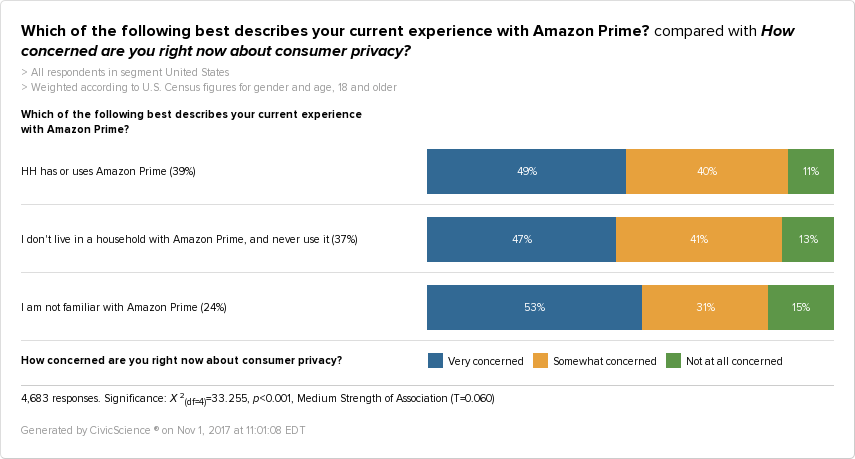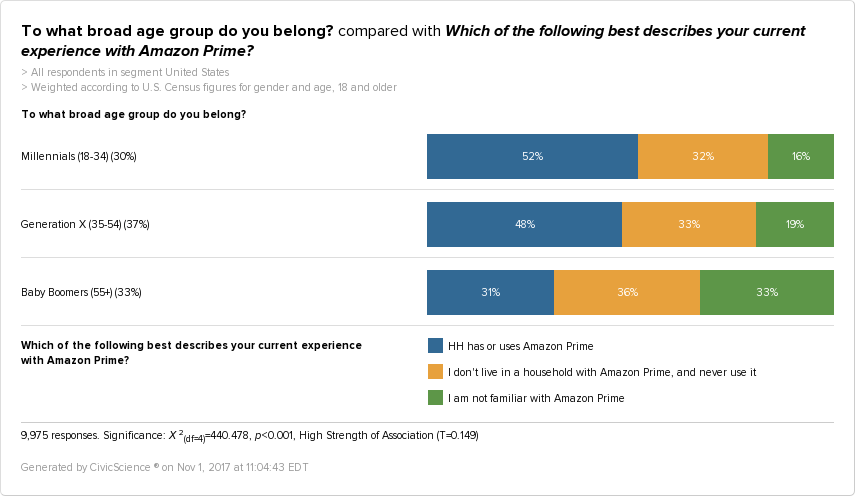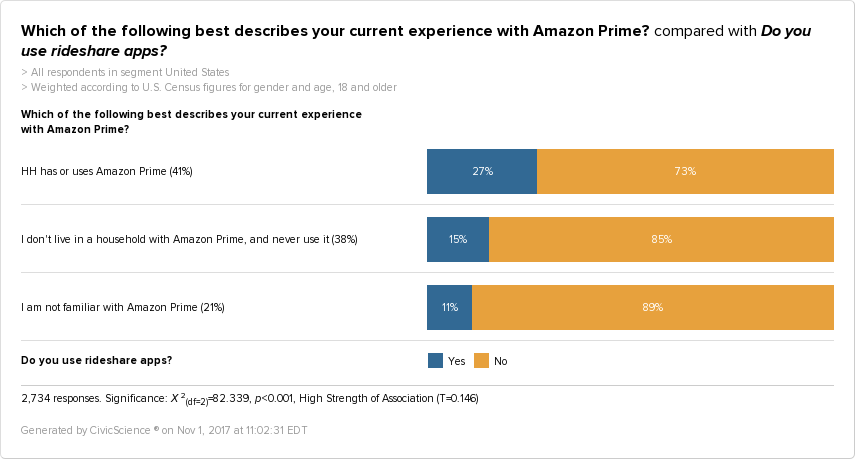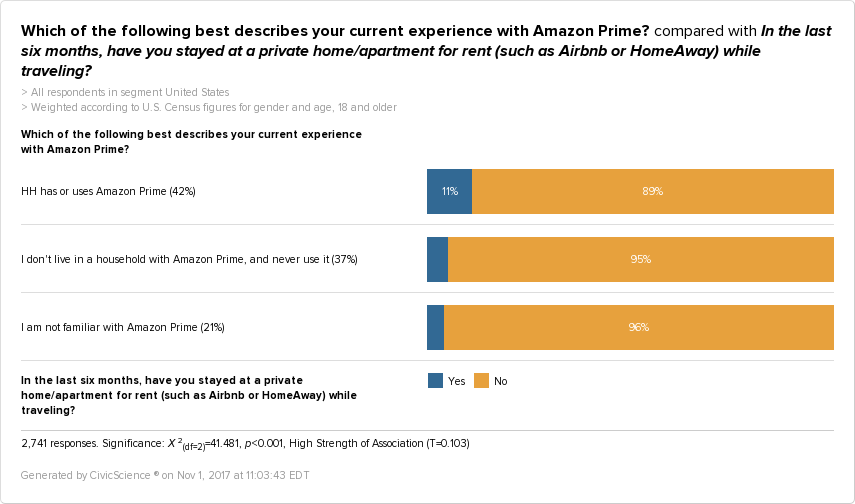The Gist: In the wake of Amazon Key’s debut, we looked at Amazon Prime members and their sentiments around consumer privacy. Amazon Prime members are more likely than non-Prime members to be at least somewhat concerned about consumer privacy, but are also more likely than non-Prime users to use Airbnb. This shows that despite concerns, these users could be persuaded to jump on board.
If you’ve been on the internet at all in the past 2 weeks, chances are you’ve heard about Amazon Key.
Amazon Key, exclusive to Amazon Prime members, is a smart lock and webcam setup (purchased through Amazon) that unlocks your door when a delivery person approaches with your package. This means that your purchased item won’t have to sit on your front stoop, prone to theft and inclement weather.
Twitter users jumped aboard the sass train on this one, claiming that, of course this new product will lead to robbery, escaped pets, or unbeknownst spying. The New York Times weighed in too, mentioning that the delivery drivers could also encounter a frightened or aggressive dog inside a home.
Personally, I wouldn’t feel safe letting a stranger into my home, not because I distrust the hiring and training processes at services like UPS and USPS, but because I’m a skeptic. I also understand that new and revolutionary products are often met with a healthy dose of skepticism.
So, I decided to give this issue the CivicScience once-over to get a gauge of how Amazon Prime members feel about consumer privacy. This could signal how the product may do once the initial skepticism wears off.
Amazon Key and Privacy
The first obvious bit of information I found is that the majority of U.S. households, at 44%, have Amazon Prime accounts, so this is a product with a very large potential audience.
Second, I noticed that when I crossed Amazon Prime users with the question, “How concerned are you right now about consumer privacy?” I found that Prime members are most likely to be at least somewhat concerned about consumer privacy (89%), but not by much.
Millennials are the Amazon Prime members with the least amount of concern about consumer privacy, with 84% being at least somewhat concerned. This is also the only generation that is, in itself, majority Prime members.
Of course, this isn’t a perfect proxy. Concerns about consumer privacy could be higher among Amazon Prime members because their payment information and home address are stored on file, and their shopping habits are tracked by cookies.
However, this is, in a way, the manifestation of those issues outside of the digital space or IRL (in real life). In both situations, consumers open themselves, and/or their front doors, up to the unknown.
Amazon Key, Rideshares, and Airbnb
To gain a better grasp of the situation, I decided to play around some more to see how likely Prime members are to use other, similar services that involve opening up personal property to a stranger.
First, I looked at Rideshares, like Uber and Lyft.
Over ¼ of Prime members answer that they use rideshare apps (the majority, by a lot), which is essentially one stranger sharing his or her car with another stranger.
However, it’s difficult to tell if people don’t use rideshares because they have a car or use some other form of transportation, so I moved on to Airbnb, which is somewhat more similar to consumer concerns around Amazon Key.
Airbnb is a service where strangers can rent out their home, a room, or an unused couch, to strangers as a more cost-effective alternative to a hotel. Sometimes homeowners rent out their entire home, or a room in their home, and aren’t even present during their guest’s stay.
There are various security checks with Airbnb, including a mutual rating system. With Amazon Key, it’s a webcam.
It turns out that Prime members are also much more likely than non-Prime members to have stayed in a private home or apartment through a service like Airbnb.
We don’t know from this question how many of them would also be willing to host a guest themselves, but they are much more likely than non-Prime members to feel comfortable entering a stranger’s home without the homeowner present.
Using Airbnb (hosting or staying) often requires more user trust than Amazon Key. So, if these consumers are willing to use this service, despite their concerns about consumer privacy, perhaps they will one day be open to Amazon’s new service.
Conclusion
I’ll say again that you can count me as one of Amazon Key’s skeptics. However, it’s important to remember that this is a new product, so that’s natural. The iPhone was once met with skepticism too!
It’s too soon to tell if the Amazon Key is the way of the future, but it will definitely be interesting to follow the early adopters’ journey along the way.













